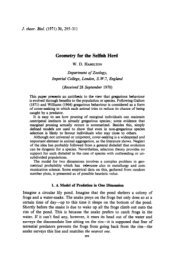Chapter 6 - Ethical Culture Fieldston School
Chapter 6 - Ethical Culture Fieldston School
Chapter 6 - Ethical Culture Fieldston School
Create successful ePaper yourself
Turn your PDF publications into a flip-book with our unique Google optimized e-Paper software.
“Mr. Sinatra Gets Rejected”<br />
capitulation made all the more awful by the self‐knowledge that accompanies it:<br />
“Pity me: I need you.” Never before and never again would Sinatra sing with the<br />
tremulous intensity that he sings these words – especially “need” – and the song<br />
ends with an assertion that his man simply can’t carry on without his lost love.<br />
“Frank was worked up,” Ben Barton, the head of his music company, later<br />
said. “So worked up he couldn’t do more than one take. But that take was so<br />
tremendous it didn’t need more than one.” 39 Indeed, an emotionally<br />
overwrought Sinatra reputedly fled the studio that night.<br />
It has been customary in (mostly brief) discussions of “I’m a Fool to Want<br />
You” to emphasize the obvious autobiographical dimensions of the song – as<br />
indeed I’ve done here. But such an approach, however valid and useful, also has<br />
the effect of obscuring the nature of Sinatra’s achievement. The really striking<br />
thing about “Fool” is not that Sinatra was able to spontaneously express his pain<br />
in song (this underestimates the decades of applied passion and discipline that<br />
Sinatra brought to the studio that night). Nor is it that “Fool” is an especially<br />
intelligent or insightful piece of music (considered solely on the basis of lyrics or<br />
music in isolation, it would undoubtedly seem both melodramatic and trite).<br />
Here’s what’s really great about the song – and, by extension, much of<br />
Sinatra’s best music: a kind of emotional honesty that closes a gap between<br />
people. The protagonist of “Fool” has no lesson or advice to offer; indeed, the<br />
unresolved ending is part of what makes it so harrowing. And yet for reasons<br />
that aren’t entirely clear, a powerfully rendered rendition of an inner life, even an<br />
anguished one, can bring comfort to those with whom it is shared: You are not<br />
alone. You are not alone in your feeling of deprivation, and perhaps more<br />
The 101 Best Recordings and the Stories Behind Them (New York: Boulevard Books, 1996), p. 33<br />
39<br />
Arnold Shaw, Sinatra: Twentieth Century Romantic (New York: Holt, Rinehart & Winston, 1968), p.<br />
145.<br />
American History for Cynical Beginners<br />
33
















